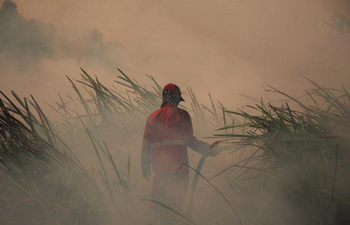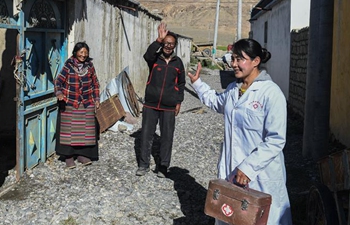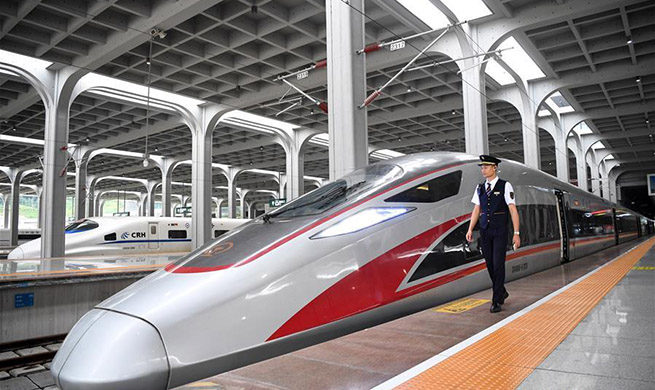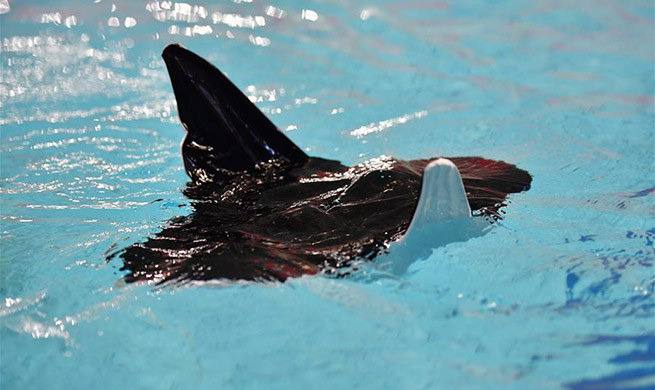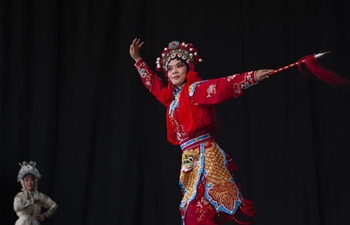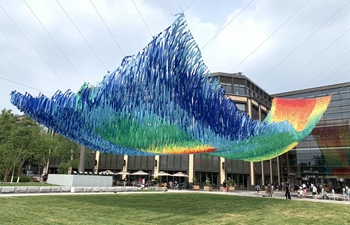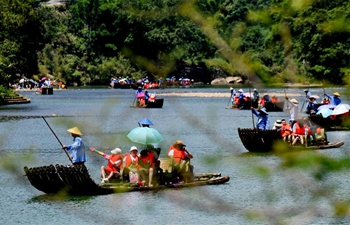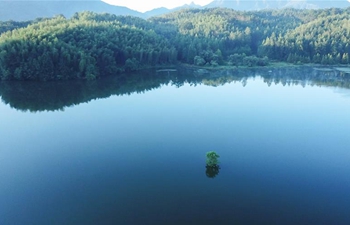JUBA, Aug. 6 (Xinhua) -- South Sudan's ceasefire monitors on Tuesday expressed strong fears on the slow progress to establish 35 cantonment sites for the opposition groups in line with the implementation of the security arrangements of the revitalized peace agreement.
The monitors expressed delay concerns as the November deadline of establishing a unified army of 83,000 personnel nears.
Desta Abiche Ageno, chairperson of ceasefire and transitional security arrangements monitoring, verification mechanism (CTSAMVM), said parties to the revitalized agreement need to urgently reassess gazetted sites for cantonment in a bid to support implementation of the peace deal.
"Some cantonment sites will need to be reconsidered because of the wet season. We have so far assessed 33 out of 35 such sites as specified by the joint defense board (JDB) and two have been verified as unsuitable for the forces," Ageno said in a statement issued in Juba.
Cantonment sites are places where units of an army may be encamped for longer periods during a military campaign.
Ageno urged parties to open cantonment sites and ensure that assembling points or barracks for the forces are implemented within the remaining four months of the pre-transitional extended period as agreed by the parties.
The warring parties agreed on May 3 to extend the pre-transitional period for another six months to address outstanding issues like security arrangements, which include assembling and screening of forces.
The parties to the peace pact had to disengage troops and achieve assembly and cantonment of forces within 30 days of the signing of the peace agreement.
However, the measure was delayed for four months for financial and technical reasons, as important details in this difficult process were left to the parties themselves to negotiate.
The peace monitors particularly the monitoring countries said Juba had to assume the costly enforcement of this process to prove its commitment to the peace agreement and encourage them to fund the remaining matters.
South Sudan descended into civil war in late 2013 and the conflict has created one of the fastest growing refugee crises in the world where the UN estimates that about four million South Sudanese have been displaced internally and externally.
A peace deal signed in August 2015 collapsed following renewed violence in Juba, in July 2016.
Under the September 2018 peace agreement, opposition leader Riek Machar, will be reinstated as vice president of South Sudan.

